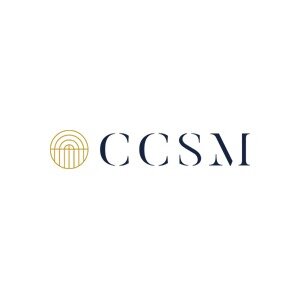Best Divorce & Separation Lawyers in Porto
Share your needs with us, get contacted by law firms.
Free. Takes 2 min.
Free Guide to Hiring a Family Lawyer
List of the best lawyers in Porto, Portugal
About Divorce & Separation Law in Porto, Portugal
Divorce and separation in Porto, as in the rest of Portugal, are governed by the Portuguese Civil Code and related family laws. The legal framework provides mechanisms for both consensual and litigious divorce, each with distinct processes and requirements. Consensual divorce is often quicker and involves less conflict, as both parties agree on the terms. Litigious divorce, however, involves court proceedings and is usually pursued when an agreement cannot be reached. The law also covers aspects related to child custody, alimony, division of property, and other matters central to ending a marital relationship.
Why You May Need a Lawyer
While not legally required, hiring a lawyer can be beneficial for navigating the complexities of divorce and separation. Common situations where legal expertise can be vital include negotiating settlements, particularly in contentious divorces, advocating for child custody arrangements that serve the best interests of the children, ensuring appropriate division of marital assets, and understanding your rights and obligations under Portuguese law. Lawyers can also facilitate smoother communication and negotiation between parties, potentially reducing conflict and stress.
Local Laws Overview
Divorce and separation laws in Porto reflect the wider legal framework of Portugal. Key aspects include the recognition of consensual divorce, which requires agreements on child custody, alimony, and property division. Litigious divorce can be pursued based on specific grounds such as irrevocable breakdown of the marriage. The law mandates consideration of the best interests of children in custody decisions, and alimony may be granted based on factors such as the length of marriage, each party's contribution, and financial needs. Property acquired during marriage is generally considered joint property and is subject to division.
Frequently Asked Questions
What is the difference between consensual and litigious divorce?
Consensual divorce involves mutual agreement on all relevant issues, while litigious divorce involves going to court due to disputes over matters like asset division or child custody.
Can I apply for a divorce in Porto if my spouse and I live in different countries?
Yes, as long as you meet certain residency requirements. It's best to consult a lawyer to navigate the international aspects of your case.
How are assets divided in a divorce in Porto?
Assets acquired during the marriage are generally divided equally unless there was a prenuptial agreement stating otherwise.
What are the child custody laws in Porto?
Custody decisions prioritize the child’s best interests, with shared custody arrangements being common to ensure continued involvement of both parents.
Am I entitled to alimony?
Alimony may be granted depending on factors such as the duration of the marriage, each party’s financial situation, and contributions made during the marriage.
Is a lawyer necessary for a consensual divorce?
While not required, a lawyer can help ensure that agreements are fair and legally sound, addressing all potential issues thoroughly.
How long does a divorce process take in Porto?
Consensual divorces can be finalized within a few months, while litigious divorces may take a year or more, depending on the complexity of disputes.
What if my spouse refuses to cooperate with the divorce?
You can still file for a litigious divorce, where the court will intervene to resolve disputes and finalize the divorce.
Can prenuptial agreements be enforced in Portugal?
Yes, prenuptial agreements are recognized and enforceable, provided they comply with legal requirements at the time they were made.
How does domestic violence affect divorce proceedings?
Domestic violence is taken seriously and may influence custody decisions and expedite restraining orders or protection measures during divorce proceedings.
Additional Resources
For those seeking additional support, the following resources can be valuable: - Centro de Arbitragem de Conflitos de Consumo do Porto: Provides mediation and arbitration for disputes. - SOS Criança: Offers guidance related to child welfare in family legal matters. - Instituto da Segurança Social: Assists with social services and benefits that may be relevant during and after divorce.
Next Steps
If you are considering or facing divorce or separation, it's advisable to consult with a family law attorney specializing in these matters. Prepare all relevant documents, such as marriage certificates, financial statements, and any existing agreements related to property or custody. Your lawyer can help you understand your legal position, rights, and options, facilitating a more informed and strategic approach to your situation. Engaging in open communication with your spouse, where possible, can also help in reaching a more amicable agreement.
Lawzana helps you find the best lawyers and law firms in Porto through a curated and pre-screened list of qualified legal professionals. Our platform offers rankings and detailed profiles of attorneys and law firms, allowing you to compare based on practice areas, including Divorce & Separation, experience, and client feedback.
Each profile includes a description of the firm's areas of practice, client reviews, team members and partners, year of establishment, spoken languages, office locations, contact information, social media presence, and any published articles or resources. Most firms on our platform speak English and are experienced in both local and international legal matters.
Get a quote from top-rated law firms in Porto, Portugal — quickly, securely, and without unnecessary hassle.
Disclaimer:
The information provided on this page is for general informational purposes only and does not constitute legal advice. While we strive to ensure the accuracy and relevance of the content, legal information may change over time, and interpretations of the law can vary. You should always consult with a qualified legal professional for advice specific to your situation.
We disclaim all liability for actions taken or not taken based on the content of this page. If you believe any information is incorrect or outdated, please contact us, and we will review and update it where appropriate.

















